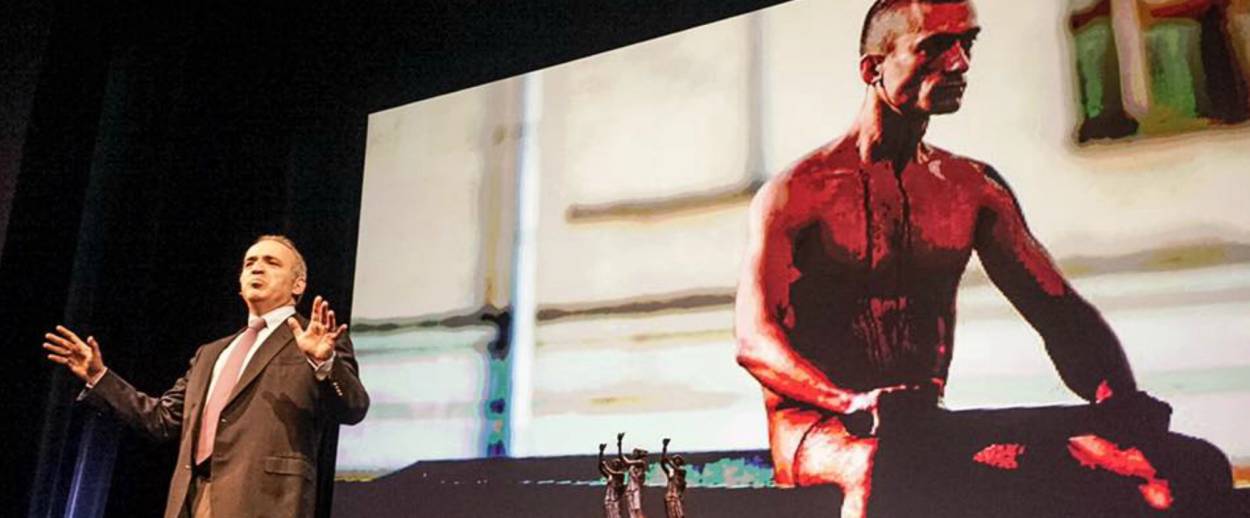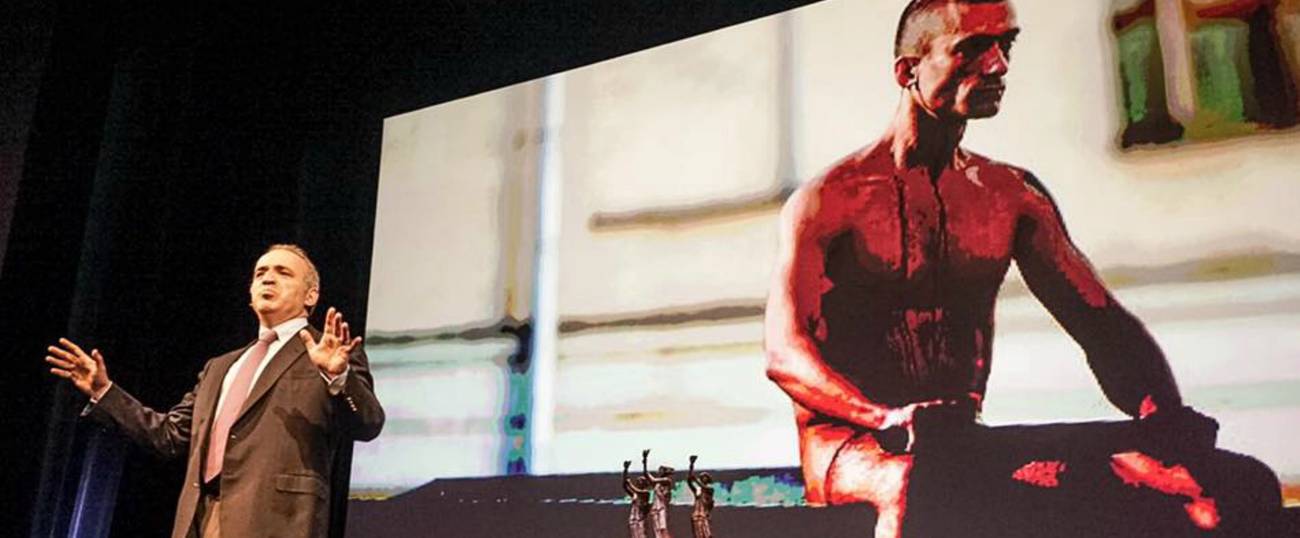A Dispatch From the Oslo Freedom Forum
Dissidents, activists, and journalists gathered in Norway during a dificult period for human rights around the world




One of the major sites in Oslo is the Viking Ship Museum, located in the city’s leafy Bygdoy Peninsula. The museum houses archaeological finds from three Viking ship burials of the 9th century A.D., discovered in various Norwegian farms and clearings in the late 19th century. The burials included two actual, formerly sea-faring Viking vessels that are nearly intact, from their severe, almost blade-like hulls, to the serpentine spiral patterns that still cap one of the great wooden ships’ towering bow.
The Viking ships are an imposing sight, but the museum inspires a certain bafflement as well. In 9th century Europe—long after the Christianization of much of the continent, around the same time as the compilation of the Talmud, and during a period when places like Fez and Baghdad were already thriving metropolises—there were still Pagan cultures that performed human sacrifices and had the sort of death-related neuroses that convince entire societies that it’s absolutely necessary to bury a perfectly usable boat in the middle of an inland field.
It’s hard to imagine a place more orderly or rational than modern-day Oslo. The ship-buriers of days past now have the top spot on the UN’s Human Development Index. So it’s fitting, in a way, that the Human Rights Foundation’s annual forum is held in a place that experienced such a hopeful and relatively brief march from barbarism to social tranquility.
At the same time, that trajectory can move in reverse, and on a far shorter time scale. The Foundation’s yearly Oslo Freedom Forum, which took place last week, is an ideal chance to reflect on what happens when the fragile, and inevitably human-made trappings of a liberal society disappear–when things go radically in the opposite direction, and Viking-like cruelty and chaos return to the center of human affairs.
This year’s forum included some well-known names: Nobel prize-winning author Wole Soyinka spoke about Boko Haram’s ravages in his native Nigeria, and Wikipedia founder Jimmy Wales discussed the plight of Bassel Khartabil, a Syrian Wikipedia editor who disappeared into Bashar al-Assad’s prison system in 2012. But the most affecting speeches at the two-day conference came from people whose names are less familiar. Abdelazaiz Alhamza, one of the founders of the Syrian anti-ISIS civil society group Raqqa is Being Slaughtered Silently recalled the day in late 2013 when ISIS recruiters first arrived at his university. And Jung Guang-il, who was thrown into his country’s gulag system despite serving in the North Korean military for 10 years, described seeing prisoners worked to death in timber forests and subjected to other, even less imaginable cruelties. He secretly crossed the border into China just 12 days after getting out of prison in 2003.
Alhamza and Jung turned their experiences into an impetus for positive action: Raqqa is Being Slaughtered Silently has gone to heroic lengths to provide on-the-ground reports from ISIS-controlled areas of Iraq and Syria, while Jung has helped smuggle flash drives into North Korea in an attempt to break the regime’s monopoly on information. The Oslo Freedom Forum aims to facilitate interactions between activists from vastly different parts of the world, and it has an optimism that belies the grim commonality of the events’ participants, most of whom had either witnessed or directly experienced some kind of systematic depravity.
“If you are in this room, it means you’ve offended someone,” the dissident Egyptian talk show host Bassem Youssef, himself the target of a 2013 crackdown, told a cheering crowd on Tuesday night. “It means you’ve offended someone very powerful.” It’s hard to walk away from a gathering of people this enthusiastic about defying forces so much more enormous than them and feel totally sullen about the state of things.
At the same time, the 2016 Oslo Freedom Forum comes after a series of events that show just how low of a priority human rights appears to be at the moment—at least for the most powerful country on earth. The troubling human rights records of Iran and Cuba weren’t enough to stop the U.S. from drawing closer to both countries over the past year. Cuba featured prominently in this year’s forum: Rosa Maria Paya, the daughter of murdered anti-Castro dissident Oswaldo Paya, slammed the Cuban government for using “images of the free world” like pictures of president Barack Obama and Pope Francis’s embrace of Raul Castro during visits to the island “to create an image of political transition.” Danilo “El Sexto” Maldondo, an anti-regime graffiti artist who was being held in a Cuban prison at this time last year, received HRF’s annual Vaclav Havel Award for Creative Dissent. Orlando Luis Pardo, the founder of Cuba’s first independent online magazine and a Forum attendee, gave me a bleak assessment of his country’s political system after the U.S.-led thaw. “The political will of the Cuban government hasn’t changed,” Pardo said, noting ongoing bans on non-government publishing and new Communist Party policies aimed at preventing “capital accumulation.”
The U.S. drift into a foreign policy in which human rights are a decidedly abstract consideration overlaps with the rise of Donald Trump, a candidate who promotesan active disdain for the very idea of caring about the rest of the world. America’s turn away from active engagement comes amidst the kind of uncertainty that makes seemingly stable dictatorships appear an attractive geopolitical option from the perspectives of global powers. Everything from the Syria conflict to the Mediterranean migrant crisis to the South China Sea rivalries make dissidents like the ones at the Oslo Freedom Forum even more politically inconvenient than they’d be in calmer times.
I asked Garry Kasparov, the chess great, Russian opposition figure, and chairman of the Human Rights Foundation, whether he saw any reason for optimism during such a trying period. “Long-term, dictators are useless,” he said. “They turn inward to try to preserve themselves.” After all, he said, democracy had spread through every region of the world “based on demands for giving people the opportunity to live their lives without dictate from the state.”
This belief in a common desire for freedom, and in the inherently self-defeating nature of autocratic government, may eventually be vindicated. In the meantime, there’s a special value in holding a human rights forum in a time when freedom doesn’t seem so inevitable, and when the Viking spirit is in the midst of such a fearful comeback.
Armin Rosen is a staff writer for Tablet Magazine.